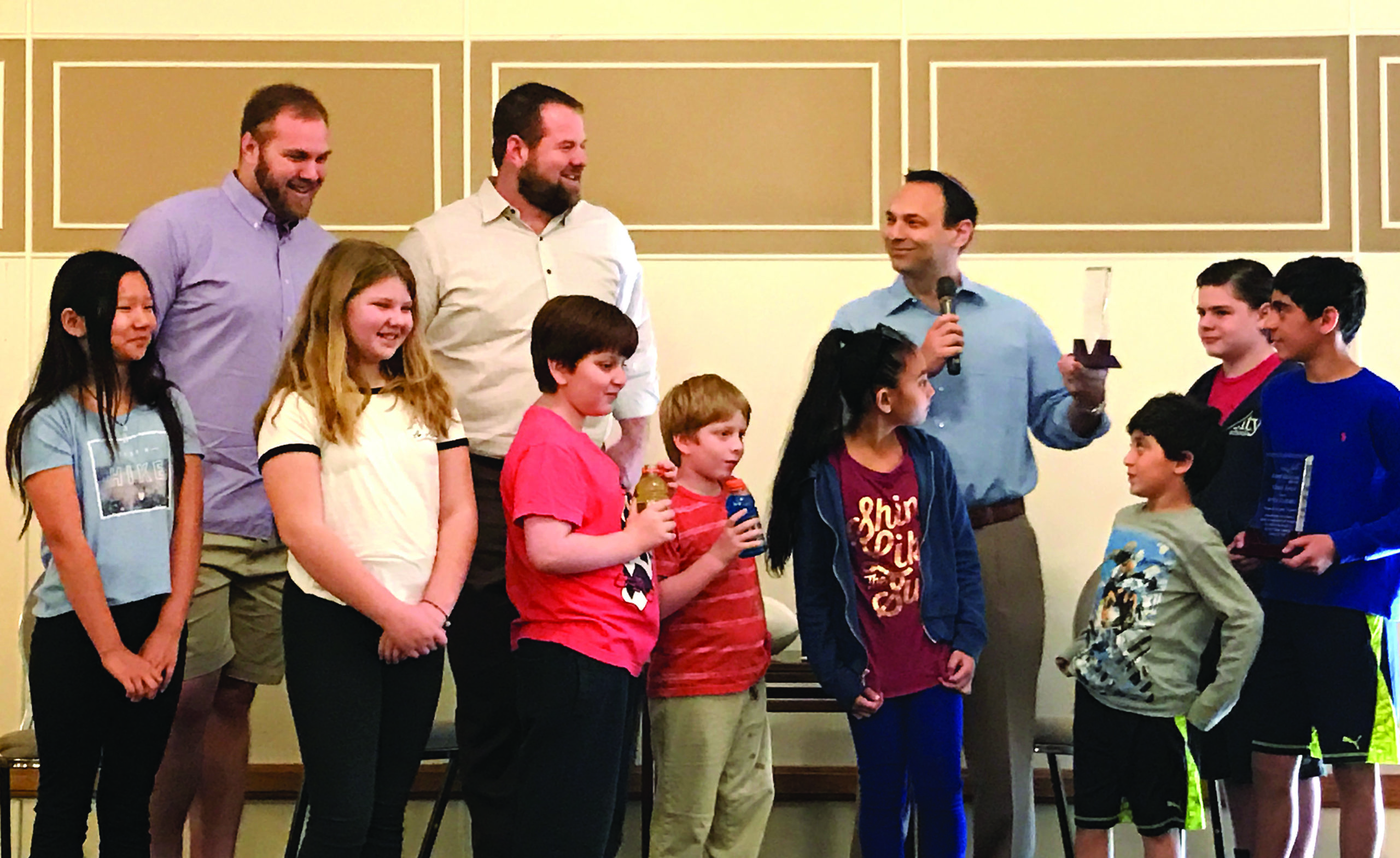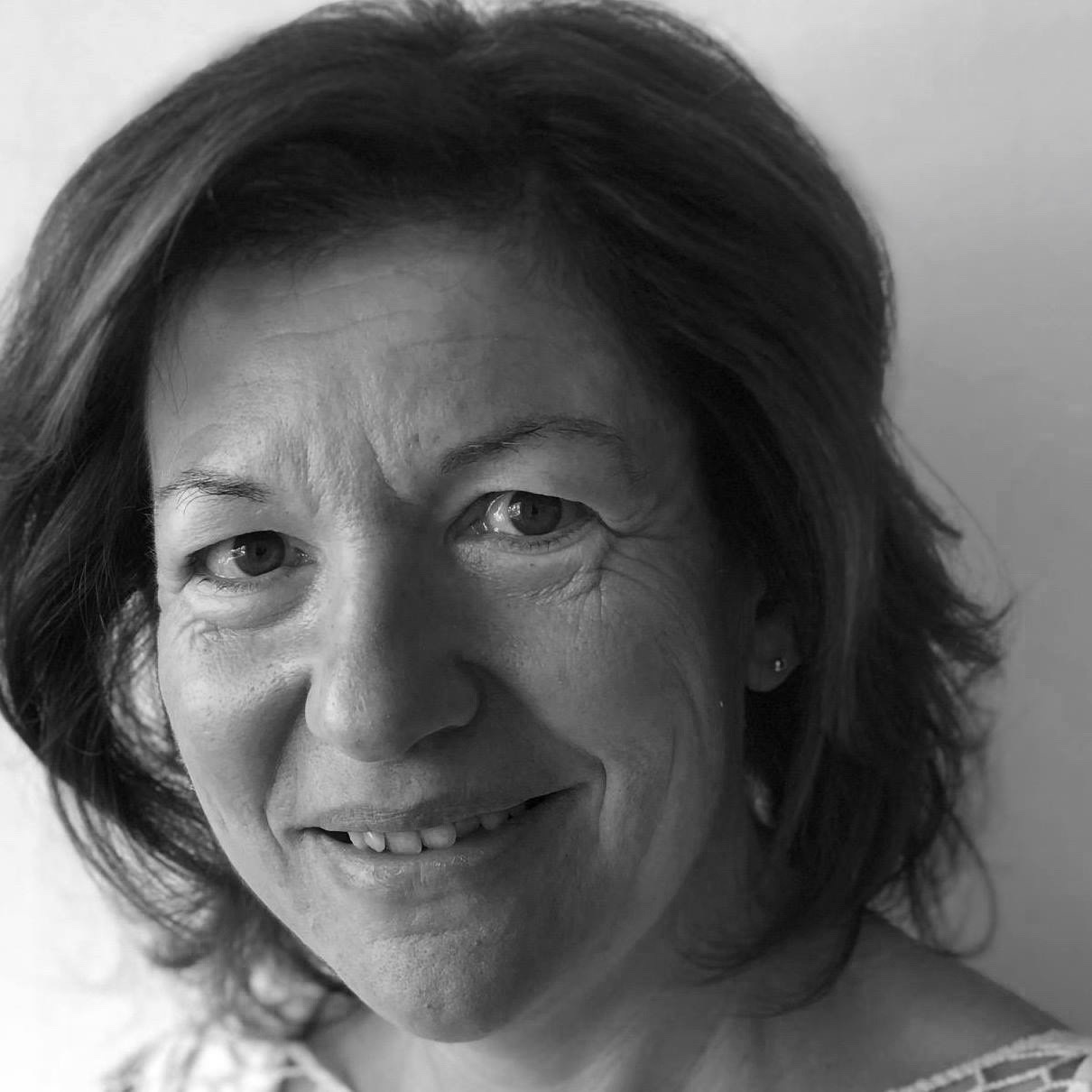 Mitchell and Geoff Schwartz, along with Rabbi Nolan Lebovitz, participate in a recent program at Adat Shalom. The Schwartzes attended religious school and became b’nai mitzvah there. Photo courtesy of Adat Shalom
Mitchell and Geoff Schwartz, along with Rabbi Nolan Lebovitz, participate in a recent program at Adat Shalom. The Schwartzes attended religious school and became b’nai mitzvah there. Photo courtesy of Adat Shalom In our current isolation, we ache with nostalgia for mundane scenes from our pre-quarantine lives.
I picture the children of Adat Shalom Synagogue gathering in the social hall during family-friendly Friday night dinners and Shabbat Kiddush lunches.
There’s a game of catch involving a circle of three boys. Two girls cartwheel straight through the middle of the group, and somehow avoid being struck by the ball. On the stage steps, two middle-schoolers sit, engrossed in conversation, plates of bagels on the floor next to them. Three preschool-aged children leave their bagels scattered all over the steps while they chase one another. Four kindergarteners eat lunch, squeezed into the small triangle of space between the stage railing and the wall. In the back corner, a girl reads to an enraptured younger boy. Two teens read alone in separate corners, engrossed despite the surrounding bedlam.
This is a one-room shul house.
At Adat Shalom, all children are welcomed into the same room. There are no rules regarding how old you have to be; how nimble you have to be; or how neat an eater you have to be to gain entry to this glorious melee of children. It is not a coincidence the synagogue has attracted and retained a number of families with children with special needs.
There’s a purity of emotion that seems to be unique to children and adults with special needs, and time and again, I have seen this combined with a love for Judaism.
In Adat Shalom’s religious school classrooms, special needs children, who elsewhere might be required to have aides or be placed in separate classes, are valued members of the group. This inclusiveness is central to Rabbi Nolan Lebovitz’s vision: “The width and breadth of the Jewish tradition has something to offer to each and every Jew at each and every level of understanding and observance. Each simcha in our community is special, individual and unique. I find it incumbent on me to empower each child to understand that ours is a tradition that has been safeguarded for thousands of years specifically for that child to own, embody and celebrate.”
Board member Carin Schachat attests to the rabbi’s commitment to giving b’nai mitzvah an experience that is “not one formula for all.” Her son Alex, who recently celebrated this milestone, “started off slowly, [but] the rabbi challenged [him, knowing] what Alex was capable of because he is actively engaged in the learning in the religious school. [The rabbi] attends the classes, asks questions and leads the children in discussions on their own individual levels.”
I have been deeply involved in special needs education and nonprofits since late 2015. Even before that, I noticed a particular kind of joy people with what are called “disabilities” bring to the Jewish community. The joy-bringer par excellence is my friend Michael Rosenbaum. Yes, he has Down syndrome, but more significant to me is his ability to pull people into the moment. At his bar mitzvah 10 years ago, you couldn’t watch Michael lead Psalm 136 (“Hodu”/“Give thanks”) without singing and dancing in gratitude for him and his infectious delight in the moment. You couldn’t watch Michael call out “Hi, Daddy” when the rabbi signaled for him to come forward for a blessing, without wishing his peers would worry as little as he did about appearing “cool.” Michael’s mother, Rony, describes him as exhibiting an unshakeable connection to Jewish music from the time he attended “Mommy and Me” classes at his synagogue. It was as if he could sense the winning combination of joy and Judaism.
There’s a purity of emotion that seems to be unique to children and adults with special needs, and time and again, I have seen this combined with a love for Judaism. I will never forget the look on a religious school teacher’s face when a student looked up at her the Sunday before Hanukkah break and told her, “I will miss you.” This experienced teacher’s heart was cracked open as it had never been before by the authenticity and directness of the student’s affection.
Adat Shalom’s one-room shul house does not pay lip service to inclusion. On the contrary, it recognizes the power of joyous children to fulfill the request of God we make before the Amidah: “Open my lips, and my mouth will sing your praises.”
Orley Garber is the founder of Builder Bees.























 More news and opinions than at a Shabbat dinner, right in your inbox.
More news and opinions than at a Shabbat dinner, right in your inbox.